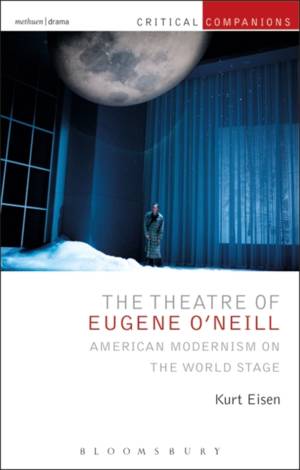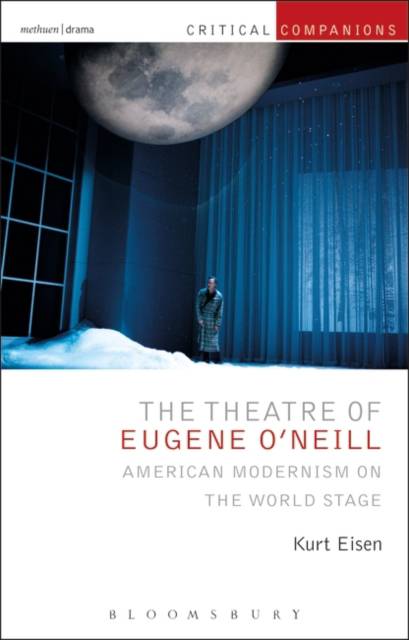
- Retrait gratuit dans votre magasin Club
- 7.000.000 titres dans notre catalogue
- Payer en toute sécurité
- Toujours un magasin près de chez vous
- Retrait gratuit dans votre magasin Club
- 7.000.0000 titres dans notre catalogue
- Payer en toute sécurité
- Toujours un magasin près de chez vous
228,95 €
+ 457 points
Format
Description
The Theatre of Eugene O'Neill offers a new comprehensive overview of O'Neill's career and plays in the context of the American theatre. Organised thematically, it considers his modernist intervention in the theatre, offers readers detailed analysis of the plays, and assesses the recent resurgence in his reputation and new approaches to staging his work. It includes a study of all his major plays - The Emperor Jones, The Hairy Ape, The Iceman Cometh, Long Day's Journey Into Night, A Moon for the Misbegotten and Desire Under the Elms - besides numerous other full length and one act dramas.
Eugene O'Neill is generally credited with inventing modern American drama, in a time of cultural ferment and lively artistic and intellectual change. Yet O'Neill's theatrical instincts were always shaped by American stage traditions that were inextricable from his sense of himself and his own national culture. This study shows that his theatrical modernism represents not so much a break from these traditions as a reinvention of their scope and significance in the context of international stage modernism, offering an image of national culture and character that opens new possibilities for the stage while remaining rooted in its past.
Kurt Eisen traces O'Neill's modernism throughout the dramatists's work: his attempts to break from the themes, plots, and moral conventions of the traditional melodramatic theatre; his experiments in stagecraft and theme, and their connection to traditional theatre and his European modernist contemporaries; the turn toward direct and indirect self-representation; and his critique of the family and of American 'pipe dreams' and the allure of success.
The volume additionally features four contributed essays providing further critical perspectives on O'Neill's work, alongside a chronology of the writer's life and times.
Eugene O'Neill is generally credited with inventing modern American drama, in a time of cultural ferment and lively artistic and intellectual change. Yet O'Neill's theatrical instincts were always shaped by American stage traditions that were inextricable from his sense of himself and his own national culture. This study shows that his theatrical modernism represents not so much a break from these traditions as a reinvention of their scope and significance in the context of international stage modernism, offering an image of national culture and character that opens new possibilities for the stage while remaining rooted in its past.
Kurt Eisen traces O'Neill's modernism throughout the dramatists's work: his attempts to break from the themes, plots, and moral conventions of the traditional melodramatic theatre; his experiments in stagecraft and theme, and their connection to traditional theatre and his European modernist contemporaries; the turn toward direct and indirect self-representation; and his critique of the family and of American 'pipe dreams' and the allure of success.
The volume additionally features four contributed essays providing further critical perspectives on O'Neill's work, alongside a chronology of the writer's life and times.
Spécifications
Parties prenantes
- Auteur(s) :
- Editeur:
Contenu
- Nombre de pages :
- 256
- Langue:
- Anglais
- Collection :
Caractéristiques
- EAN:
- 9781474238410
- Date de parution :
- 16-11-17
- Format:
- Livre relié
- Format numérique:
- Genaaid
- Dimensions :
- 145 mm x 218 mm
- Poids :
- 439 g

Les avis
Nous publions uniquement les avis qui respectent les conditions requises. Consultez nos conditions pour les avis.






